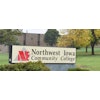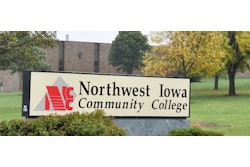Very few female and minority students pursue engineering and computer science degrees at Texas universities, according to an eye-opening Society of Women Engineers (SWE) report that analyzed the state’s community-college transfer students.
In analyzing data from the Texas Education Research Center, SWE researchers found that less than 4 percent of female students chose engineering or computer science (ECS) majors compared to nearly 20 percent of men across two- and four-year institutions in the state. Evidence of a slight decrease in ECS major declarations among women comes despite more women than men enrolling in college each year.
“Even as girls have reached some level of parity in math and science achievement, there’s still, in many cases, unconscious barriers in place that keep girls and women from pursuing a STEM education, particularly in the areas of engineering and computer science,” said Dr. Roberta Rincon, author of the report and manager of research at SWE.
Key report findings indicate that less than 4 percent of White, Hispanic and Black female students declared an ECS major in the 2010-2011 “first time in college” (FTIC) cohort, compared to 8 percent of Asian women. For students who transferred from community colleges, less than 2 percent of female students selected an ECS major compared to 11 percent of male students.
SWE researchers also note that women switch out of ECS fields and earn non-ECS baccalaureate degrees at higher rates than men when they transfer to four-year institutions.
The report focuses on community colleges as a potential pipeline to diversify ECS fields because researchers found that approximately 15 percent of two-year college students declare an ECS major; more than 65 percent of students who declare an engineering major transfer to a four-year university to complete an engineering degree; and many underrepresented groups – including women and minorities – begin their matriculation at a community college.
Especially significant is the analysis of community college students’ persistence rates that indicated that women’s persistence rates in ECS have risen nearly 12 percent since the 2002-2003 FTIC cohort, compared to a 3 percent increase for male counterparts over the same time period. Even so, less than 30 percent of students who transferred and declared an ECS major at a public institution in Texas had persisted in the same field by 2015, with Black and Hispanic students having the lowest rates of persistence and completion of an ECS degree.














